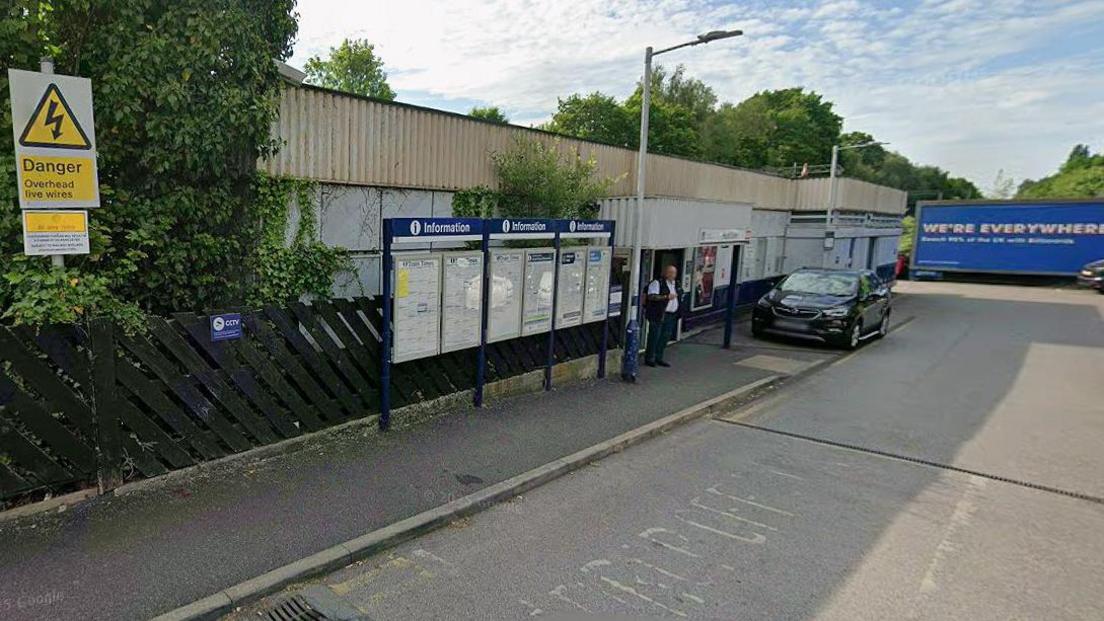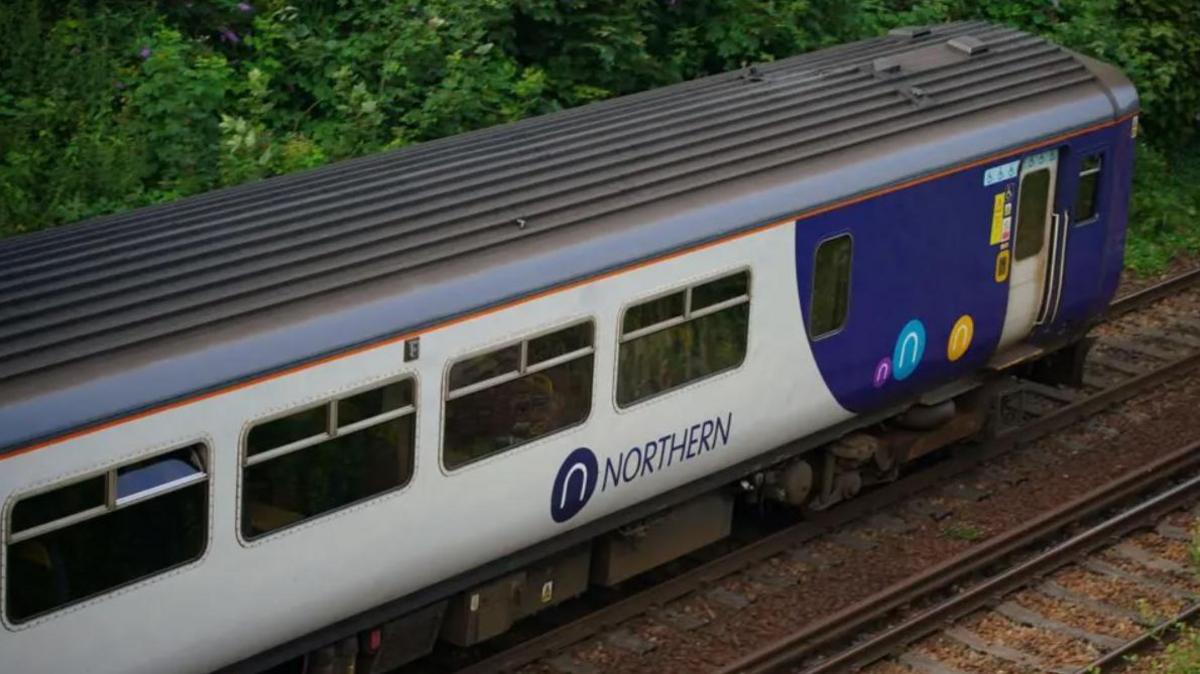Region's rail cancellation capital revealed

Heald Green station saw 2,790 cancellations during the 12 months to August
- Published
Rail passengers using Heald Green station in Greater Manchester experienced the most cancellations in the north-west of England during the year to August.
Data collected by the BBC found 7.8% of services through the station in Stockport were cancelled during that 12-month period.
Cheadle MP Tom Morrison said the "terrible service" needed to be fixed. Northern Rail, which services the station, said it was working to "stabilise performance and cut cancellations", while the government said it was "determined to drive up standards across the railways".
Of the 100 busiest stations in England, Manchester Oxford Road had the worst record outside London, with one-in-20 trains not turning up.
Of 35,372 scheduled train stops in Heald Green, 2,790 were cancelled.
Gatley, also in Stockport, had a similar cancellation rate. Its 2,524 cancellations represented 7.7% of services and was the third highest in the north-west of England.
Liberal Democrat MP Morrison said "many of his constituents regularly contact me to tell me how terrible the train services" are in the area.
"I've been engaging with Northern a long time about the situation," he said.
"I keep being promised that they're going to fix it but yet the problems continue.
"My residents just cannot carry on like this."
Morrison said he has been given a multitude of reasons for the problems.
"The main one they say is that they've got issues around staffing; they haven't got enough conductors and there are changes in the contracts that are being disputed with the unions at the moment.
"I don't care about the excuses. We need the trains to be running at a decent pace.
"So many of my residents rely on getting to work, getting to school, getting to see friends and family, and if [trains are] not running regularly [or] consistently, then that causes real problems and Northern need to get it fixed."

Northern said it was working to "stabilise performance and cut cancellations"
Matt Rice, Northern's chief operating officer, said: "We have been working hard to stabilise performance and cut cancellations in recent months.
"There are green shoots of progress, but we know more work needs to be done before we can deliver lasting improvements for our customers."
Apologise for disruption
Rail Delivery Group, which represents National Rail and other train operators, said: "We know how important reliability and punctuality is to customers and the rail industry is working hard to maintain as many services as possible.
"This includes significant investment to improve infrastructure and rolling stock reliability.
"Train operators spare no effort to maintain as many services as possible but cancellations or delays can occur due to various factors, such as extreme weather, infrastructure issues like track or signalling faults, train faults and external incidents, such as trespass.
"When delays or cancellations happen, we are proactively notifying passengers in advance."
It said it had also introduced visual disruption maps - videos to help passengers "navigate service changes and make informed travel decisions".
It added: "We are also raising awareness of 'delay repay' to simplify compensation claims for affected passengers.
"We know how much reliability matters when travelling and apologise to everyone affected when services are disrupted."
'Leaving people stranded'
Meanwhile, the Campaign for Better Transport said "three million train cancellations is simply unacceptable and is eroding passenger faith in the railways".
Spokesman Michael Williams said: "Cancellations are not just an inconvenience, they cause real problems including leaving people literally stranded when no alternative services are available.
"We need a reliable, affordable and accessible rail network to deliver economic growth, increase productivity and reduce carbon emissions, yet delays and cancellations are reducing the network's usability and attractiveness."
He added: "We need tougher targets, automatic compensation, and proper investment to restore trust.
"The rail industry and government must now work together to invest in both the workforce and infrastructure to improve reliability across the whole network."
'Signs of progress'
A Department for Transport spokesperson said: "We are determined to drive up standards across the railways, as we deliver the biggest overhaul in a generation – and we are starting to see positive signs of progress with overall cancellations starting to fall.
"The Transport Secretary has been clear operators will have to meet rigorous, bespoke standards to earn the right to be called Great British Railways, so we can rebuild a world-class public service."
Get in touch
Tell us which stories we should cover in Greater Manchester
Listen to the best of BBC Radio Manchester on Sounds and follow BBC Manchester on Facebook, external, X, external, and Instagram, external. You can also send story ideas via Whatsapp to 0808 100 2230.